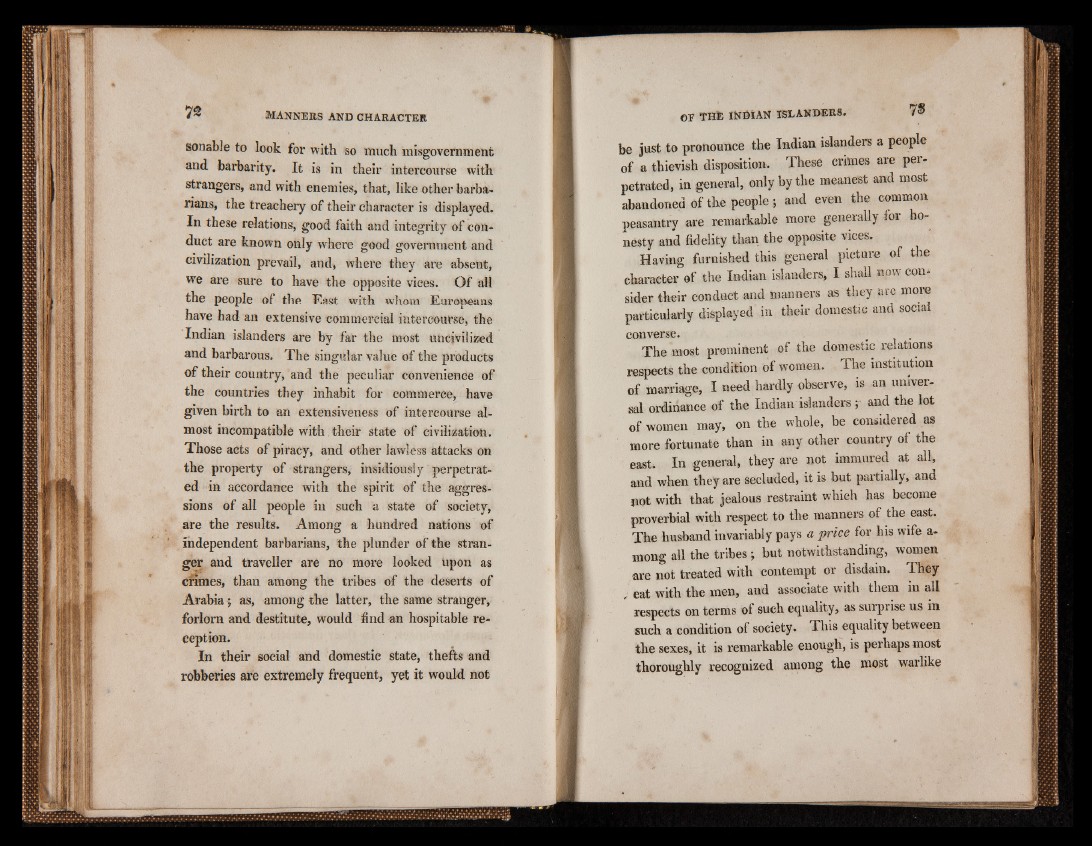
sonable to look for with so much misgovernmenfc
and barbarity. It is in their intercourse with
strangers, and with enemies, that, like other barbarians,
the treachery of their character is displayed.
In these relations, good faith and integrity of conduct
are known only where good government and
civilization prevail, and, where they are absent,
we are sure to have the opposite vices. Of all
the people of the East with whom Europeans
have had an extensive commercial intercourse, the
Indian islanders are by far the most uncivilized
and barbarous. The singular value of the products
of their country, and the peculiar convenience of
the countries they inhabit for commerce, have
given birth to an extensiveness of intercourse almost
incompatible with their state of civilization.
Those acts of piracy, and other lawless attacks on
the property of strangers, insidiously perpetrated
in accordance with the spirit of the aggressions
of all people in such a state of society,
are the results. Among a hundred nations of
independent barbarians, the plunder of the stranger
and traveller are no more looked upon as
crimes, than among the tribes of the deserts of
Arabia; as, among the latter, the same stranger,
forlorn and destitute, would find an hospitable reception.
In their social and domestic state, thefts and
robberies are extremely frequent, yet it would not
be just to pronounce the Indian islanders a people
of a thievish disposition. These crimes are pei-
petrated, in general, only by the meanest and most
abandoned of the people; and even the common
peasantry are remarkable more generally for honesty
and fidelity than the opposite vices.
Having furnished this general picture of the
character of the Indian islanders, I shall now consider
their conduct and manners as they are more
particularly displayed in their domestic and social
converse. . . .
The most prominent of the domestic relations
respects the condition of women. The institution
of marriage, I need hardly observe, is an universal
ordinance of the Indian islanders ; and the lot
of women may, on the whole, be considered as
more fortunate than in any other country of the
east. In general, they are not immured at all,
and when they are secluded, it is but partially, and
not with that jealous restraint which has become
proverbial with respect to the manners of the east.
The husband invariably pays a price for his wife a-
mong all the tribes ; but notwithstanding, women
are not treated with contempt or disdain. They
} eat with the men, and associate with them in all
respects on terms of such equality, as surprise us in
such a condition of society. This equality between
the sexes, it is remarkable enough, is perhaps most
thoroughly recognized among the most warlike